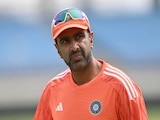- Israel Defence Minister Israel Katz confirmed Israel sought to assassinate Iran's Supreme Leader Khamenei
- Khamenei went into hiding, breaking communication with commanders, making assassination unrealistic
- Israel's goal was to pressure Iran's regime, not regime change, during the conflict
Israel's Defence Minister Israel Katz has claimed that his country's military actively sought to assassinate Iran's Supreme Leader, Ayatollah Ali Khamenei, during the recent Israel-Iran tensions, but failed to identify a viable opportunity.
Speaking in a series of primetime interviews across three major Israeli broadcasters, Channel 12, Channel 13, and the state-run Kan, Mr Katz disclosed new details about Israel's war strategy and acknowledged the assassination plan was called off after Khamenei went into hiding.
"If he had been in our sights, we would have taken him out," Mr Katz told Channel 13. "We searched a lot," he added.
The interviews mark the first public confirmation by a senior Israeli official that the leadership in Tehran had been directly targeted during the war. While the Israeli Defence Forces (IDF) and intelligence agencies had previously focused on attacks on Iran's nuclear infrastructure, this is the first admission of a high-level targeted killing plan.
In his remarks to Kan, Mr Katz claimed that Ayatollah Khamenei had quickly retreated into a bunker, severing communication with top military commanders. "Khamenei understood this, went very deep underground, broke off contact with the commanders... so in the end it wasn't realistic," Mr Katz claimed.
US President Donald Trump, writing on Truth Social during the conflict on June 17, also appeared to threaten the Ayatollah, stating, "We know exactly where the so-called 'Supreme Leader' is hiding. He is an easy target, but is safe there - We are not going to take him out (kill!), at least not for now."
Mr Trump subsequently stepped back from the threat, clarifying that regime change was not a current objective of US policy.
Mr Katz said Israel's goal during the war was not regime change per se but to "upset the regime in the middle of the operation and pressure the Iranians." He compared Ayatollah Khamenei to former Hezbollah chief Hassan Nasrallah, who was killed in an Israeli airstrike last year, and said Mr Khamenei should remain underground for his safety.
"I wouldn't recommend that he stay tranquil," Mr Katz said. "He should learn from the late Nasrallah, who sat for a long time deep in the bunker. I recommend that he do the same thing."
The Israeli Defence Minister assured that, following the ceasefire which came into effect two days ago, Israel was not currently pursuing Mr Khamenei's life. "There's a difference - before the ceasefire, after the ceasefire," he told Channel 13.
'Exaggerated Events'
Ayatollah Khamenei, making his first public appearance since the ceasefire, rejected claims of Iranian nuclear ability being paralysed. He claimed that the strikes caused "nothing significant" to Iran's nuclear infrastructure and dismissed US claims as exaggerations. "The American president exaggerated events in unusual ways," he said. "It turned out that he needed this exaggeration."
He also declared Iran victorious in the conflict and praised the Islamic Republic's missile retaliation. "The Islamic Republic won, and in retaliation dealt a severe slap to the face of America," he said.
Iran's retaliatory strikes killed 28 Israelis, according to the Israeli government. Israeli military strikes, by contrast, killed at least 627 civilians in Iran, according to the Iranian health ministry.















